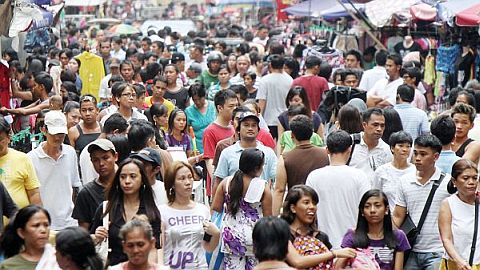
The government wants the proposed national ID system for 105 million Filipinos to be put in place.
/Inquirer file photo
To ensure that only poor families to be impacted by higher prices as a result of comprehensive tax reform will benefit from the proposed subsidies, the government plans to issue national identification (ID) cards to 105 million Filipinos, the Department of Finance said Friday.
As such, the DOF urged Congress to pass into law the measures aimed at putting in place a national ID system.
“Once the Congress enacts a law enabling a national ID system, the first to be issued such cards will be senior citizens and persons with disabilities, followed by members of the 5.2 million poorest households in the country not yet covered by the ongoing conditional cash transfer initiative of the Department of Social Welfare and Development known as the Pantawid Pamilyang Pilipino Program (4Ps),” Finance Undersecretary Karl Kendrick T.
Chua said in a statement.
“The Philippine Statistics Authority will issue the ID cards, with the National Economic and Development Authority providing oversight functions.
The DSWD, meanwhile, will coordinate the various social benefits programs that will be put in place under “Train,” Chua added, referring to the Duterte administration’s Tax Reform Acceleration and Inclusion Act under House Bill No. 5636.
Train contains the first tax reform package aimed at bringing down the personal income tax rates while slapping new or additional taxes on consumption, which are expected to hike prices of basic goods and transport costs.
According to Chua, “the DOF proposal is for the national ID to contain biometrics data about an individual, with the possibility of adding an EMV [Europay-Mastercard-Visa] chip card to load the cash subsidies for persons legally entitled to such benefits.”
“The ID will also contain information to determine if a person can take advantage of discounts in medicines, commuting, health care, education and other applicable benefits under the law and as specified under Train,” according to Chua.
The proposed national ID will replace all government-issued IDs save for passports and drivers’ licenses, to be issued within two years after passage of a law to 105 million Filipinos, Chua said.